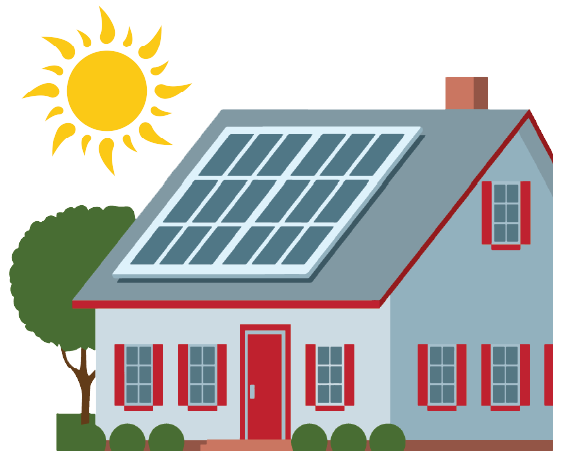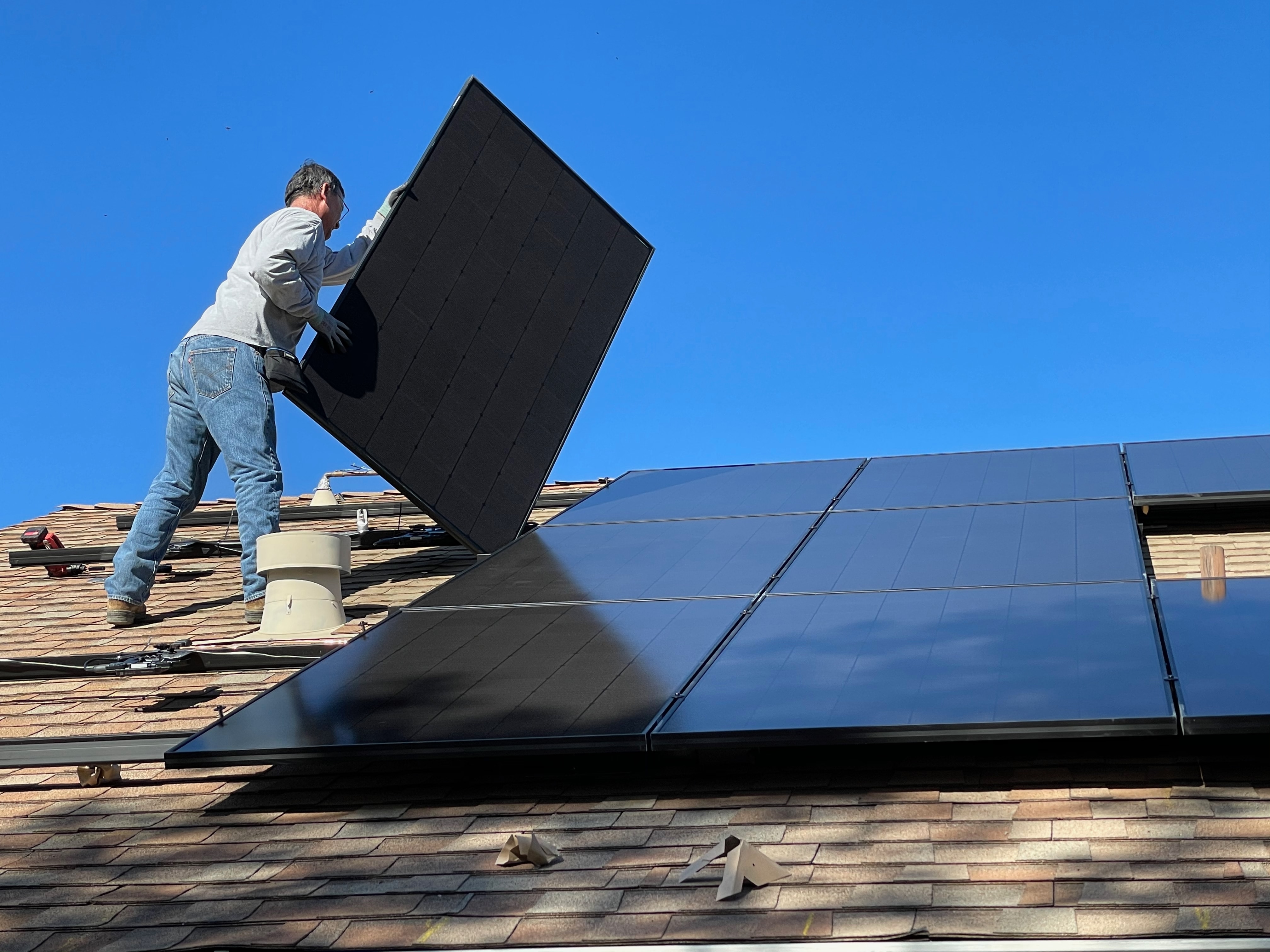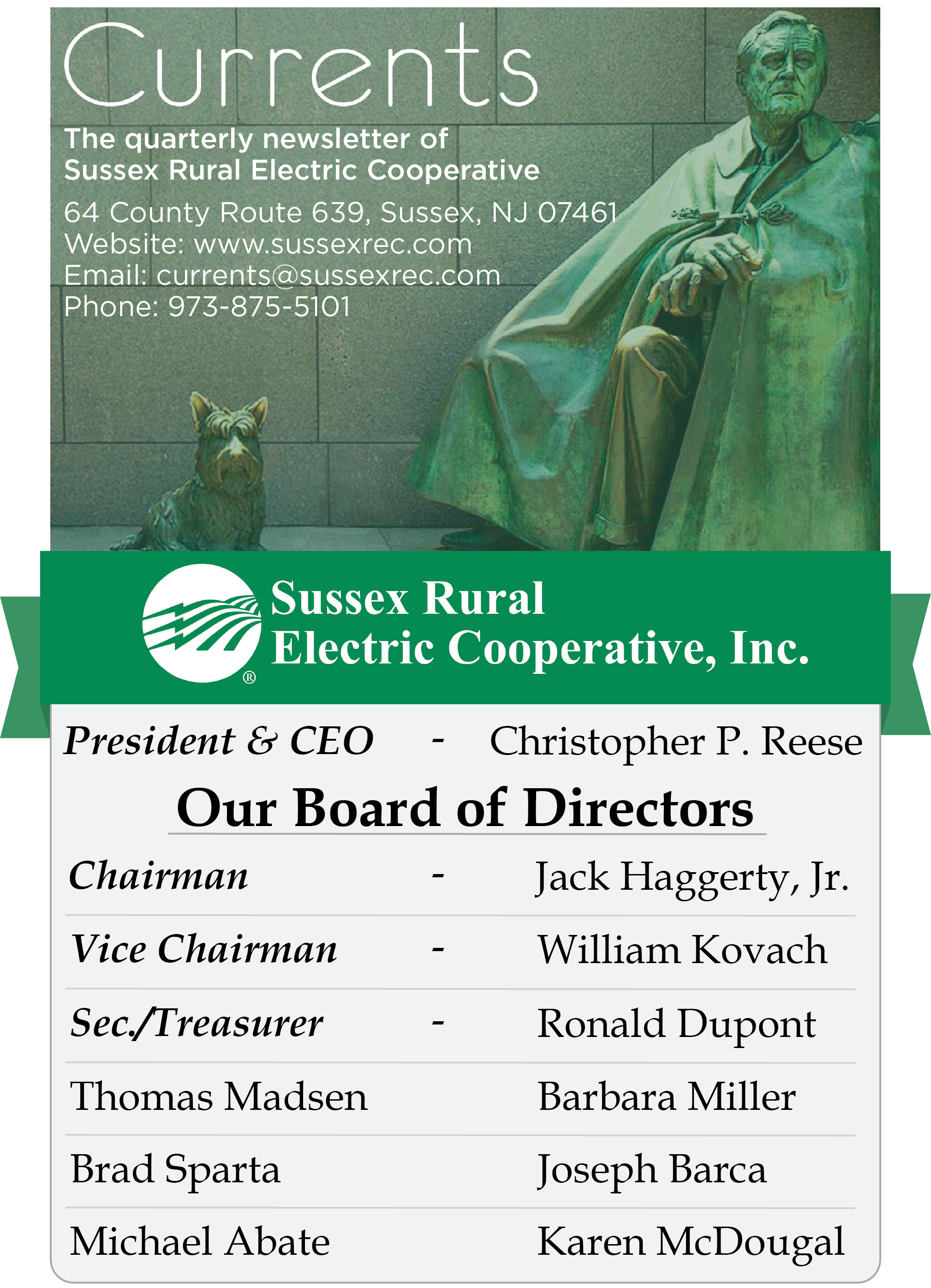To view the full print/pdf version of Volume 1, Issue 4 of Currents, click here
For previous issues of Currents, visit our Currents Library
What to Consider Before Installing Solar
By: Steve Sokolowski, Marketing Associate
Email: ssokolowski@sussexrec.com
 The industry behind residential solar power is booming, with 6.4 gigawatts of small-scale generating capacity added in the U.S. in 2022 – the most ever in a single year, according to data from the U.S. Energy Information Administration (EIA). This has no doubt been driven by tax incentives and public policy that make solar power more accessible to American homeowners, not to mention the promise of collecting “free energy” from the sun to lower your electric bill.
The industry behind residential solar power is booming, with 6.4 gigawatts of small-scale generating capacity added in the U.S. in 2022 – the most ever in a single year, according to data from the U.S. Energy Information Administration (EIA). This has no doubt been driven by tax incentives and public policy that make solar power more accessible to American homeowners, not to mention the promise of collecting “free energy” from the sun to lower your electric bill.
The benefits of installing rooftop solar panels may seem like a no-brainer, but the reality is not every home is a good fit for solar and not every solar company may be a good fit for you.
Sussex Rural Electric Cooperative has over one hundred households on its lines with solar panels installed, and more interconnection applications coming in every day. If you’re interested in learning more about our application process, our website offers all you need, from questions you should ask, to interconnection agreements, even a step-by-step guide to the whole process!
If you are considering adding solar panels to your home, you should take certain factors into consideration to make sure that your experience is worthwhile and regret-free. Here are six questions to consider before signing up for rooftop solar:
1. Does this purchase make financial sense? Offsetting your carbon footprint is a benefit for the environment and, however great the motivation, you must also keep in mind that solar panels are a financial investment. Despite what salespeople may say, you will still have to pay an electric bill. Solar-owning members will, at minimum, still have to pay our monthly System Connection Fee. Also, the amount of sunlight our area receives can vary seasonally, so this puts a cap on how much energy your panels may produce. This is not even considering the costs that come with installing a new rooftop solar system, whether you lease or buy outright. According to EcoGen America, the average NJ homeowner with solar will only save about $20 per month on energy costs.
2. Is your roof suitable for solar? Make sure your roof is in good condition before installing solar panels. Does your roof need to be replaced before panels can be mounted? Find out from a roofer and not the solar company. Also, the size and angle of your roof is important. Consider how much sun (and shade) your roof receives and if any trees will need to be removed.
3. How long will you own the home? If you’re considering solar, you’re likely planning to stay in the home for several years. Solar systems typically last for 25-30 years. If you plan to sell the home somewhat soon, consider that not all potential buyers will want to maintain a rooftop solar system. If you enter into a contract to lease the system, carefully review the terms and what those mean for you if you decide to sell the property.
4. Lease or purchase? Purchasing a rooftop solar system outright is expensive, which is why many homeowners opt to lease their systems. Federal and state incentives can help cover some of the costs for a new system, but many homeowners are surprised at the remaining cost and how much they end up paying their solar contractor monthly for their system.
5. Who will maintain the solar panels? Periodically, solar panels need to be cleaned as dirt and debris can impact productivity. Parts may also need to be replaced, so it’s important to know who will handle these responsibilities.
6. Is your solar contractor reputable? When looking for a solar contractor, you must maintain a critical eye to find one that would work best for you. Request proof and documentation of licensing and other credentials, carefully comb through company reviews, and make sure that the installers work for the company instead of a third-party vendor. We’ve seen cases where unscrupulous solar companies have overpromised what homeowners can gain from solar, installed systems without complying with Co-op, town, or state rules, damaged members’ homes, and even shuttered their business without providing their customers any notice or avenue of support to maintain their systems. Closing shop and reopening under a new name also makes it so past complaints to the Better Business Bureau can go unnoticed. In such a new, booming field, there are many companies out there looking to take advantage of unsuspecting homeowners. Don’t let that happen to you!

A big commitment like installation of a new solar system can have its benefits, but also comes with its share of risks. Please keep all of this in mind if you are interested in going solar. For more information on solar ownership as an SREC member, visit www.sussexrec.com/solar.



